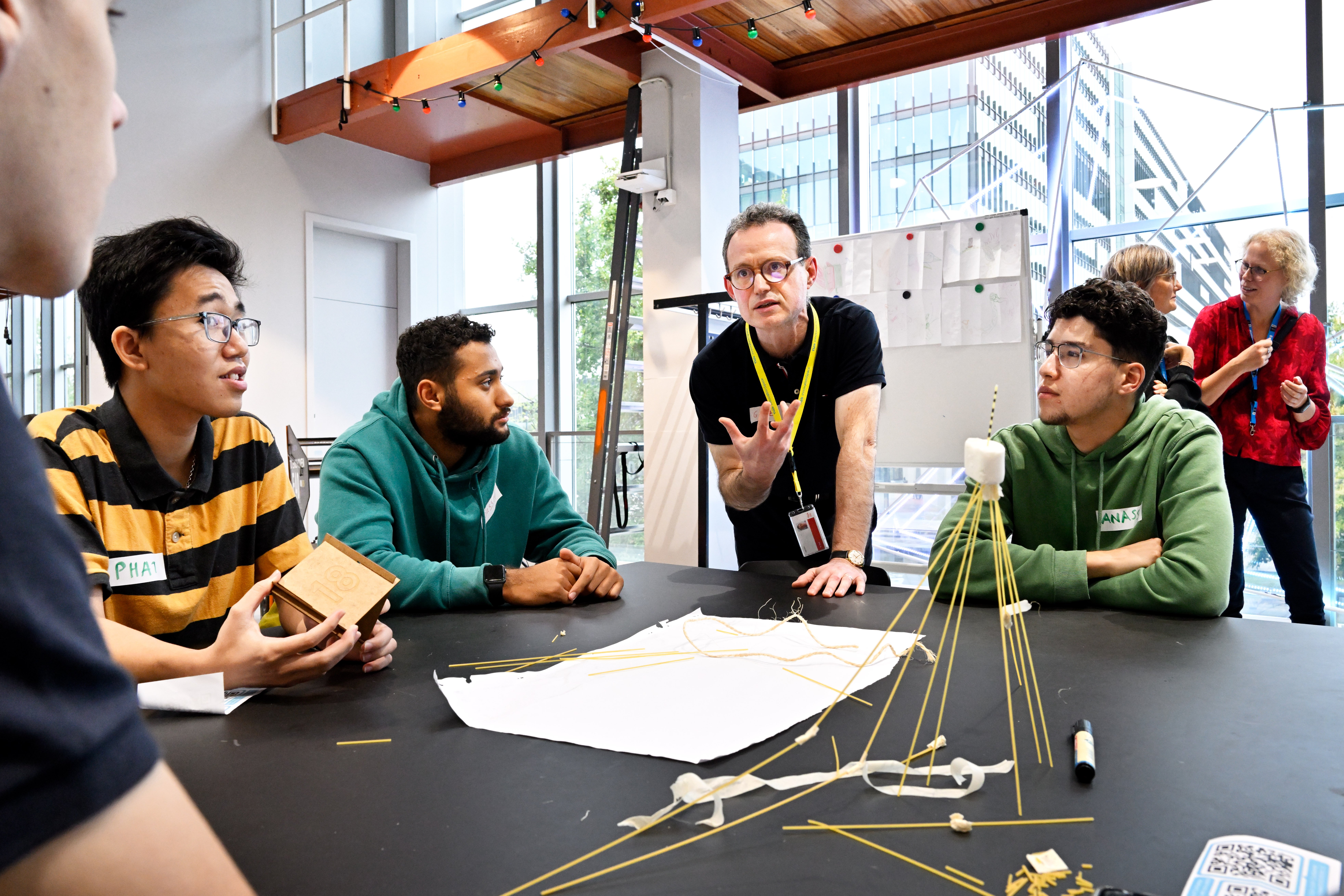
The international incubation scheme European Venture Programme takes students and researchers from technical universities on an entrepreneurial expedition. Because why should you start out small when you can immediately make contacts all over Europe? “Often entrepreneurs start in their own region and then go on to grow in their own country and then slowly but surely expand further into Europe”, explains Steven van Huiden, TU/e programme manager of the European Venture Programme. “But that is not always the best strategy. Maybe there is a larger or more suitable market in another country, which enables you to grow much faster as a company.” In order to help the academic entrepreneurs to do this, the EuroTech Universities Alliance set up the EVP. This coalition is made up of six technical universities in Europe and Israel.
“We introduce entrepreneurs at an early stage to the many different business cultures in various countries,” says Van Huiden. Normally the participants travel together through Europe. ” This allows them to really get a taste of the true spirit of a place, get to know the culture, and become acquainted with potential partners and customers.” The entrepreneurs then visit four of the six participating universities. Namely, TU Eindhoven (the Netherlands), DTU Copenhagen (Denmark), TU Munich (Germany), EPFL Lausanne (Switzerland), École Polytechnique Paris (France) and Technion in Haifa (Israel).
Valuable contacts
The journey distinguishes the EVP from other international incubation programmes, but it is not possible this year owing to the coronavirus outbreak. The entrepreneurs are therefore attending digital workshops and seminars. Van Huiden: “The idea is still the same. Students get to learn about international entrepreneurship and make valuable contacts. The programme focuses on themes that universities themselves pay little attention to. It mainly concerns the non-technical aspects of entrepreneurship. Each country, for example, has certain regulations and, above all, its own culture that has an influence on entrepreneurs. This is information that is not easily found on the internet”, says Van Huiden. For example, students engage in discussions with entrepreneurs from a certain region. “So, besides the times spent together, we have digital spaces where students can exchange information with each other.”
MQS wins a prize
After two intensive weeks packed with workshops and development sessions, the participants pitched their idea to an independent jury. Molecular Quantum Solutions (MQS) from Denmark won the prize of €2500. The start-up is developing computing tools to accelerate research in the pharmaceutical, biotechnology, and chemical industries. The tools use supercomputers and quantum computers to compute the properties of materials and chemicals in a high-speed and efficient way. This allows materials to be screened very quickly, instead of the long and expensive laboratory tests that are currently required. Falcon Electric Aviation won the public prize, which was awarded by the participants themselves.
The participants all work on multifaceted projects. From medical technology, to data platforms for risk management, and ways to accelerate the energy transition. Four entrepreneurs from four different start-ups participated hailed from the Technische Universiteit Eindhoven (TU/e). They are all in different phases. One start-up will soon enter the market, while the other is still in the technological development phase. Despite their varied backgrounds, they are all keen to gain knowledge and experience in international entrepreneurship. “I find it interesting to know more about entrepreneurial cultures in other countries. We would like to expand into Europe, that’s why it’s useful to know what the best way to approach people in a certain country is,” says Freek van Welsenis, co-founder of Hable Accessibility.
European market is key
Hable makes braille keyboards for smartphones. “This is how we want to ensure that the blind and visually impaired can use a smartphone by themselves,” says Van Welsenis. “It’s quite a niche market, so we are focusing on several countries early on. According to him, there are many cultural differences within Europe that you need to take into account as an entrepreneur. “For instance, contact between companies and partners in Germany is much more business-like. While in France people are less punctual and it is a lot easier if you are introduced by someone else,” he notes. “These are good tips that you can use straight away.”
The start-up GOAL 3 is also looking for international contacts. Not so much as potential customers, but mainly as partners. The company is developing a robust monitor for the pediatric departments of hospitals in developing countries. By just being able to monitor patients’ heart rate and blood pressure, for example, easily treatable diseases such as blood poisoning and pneumonia can be diagnosed at an earlier stage. This helps prevent any avoidable infant mortality. Co-founder Jelle Schuitemaker: “We first want to sell the product in African countries. There is already a wealth of knowledge about healthcare here in Europe. We hope that this programme will help us to get in touch with potential partners and investors so that we can achieve our goals together.”
Contacts and ideas
Alongside the start-ups Hable and GOAL 3, another student team is also participating in the EVP – public prize winner Falcon Electric Aviation. The team wants to substitute the internal combustion engine of small aircraft with an electric version so as to make flying cleaner and cheaper. “As technical students, we first saw this as an interesting technical challenge. Now that we have developed the idea a bit more, we want to see how we can move forward as a start-up,” says Brandon van Schaik, team leader at Falcon Electric Aviation. “I learned a lot about entrepreneurship, both in the workshops and from the other participants.”
Read more about Falcon Electric Aviation here
Entrepreneurship was also new to Zeeshan Ahmed from Zavhy. “I’m a researcher and I didn’t know much about the business side.” He is developing a printing technology to help construction companies with large-scale projects. Ahmed: “The programme has helped me a lot with learning new things and especially with contacts that we will definitely work with in the future.”







